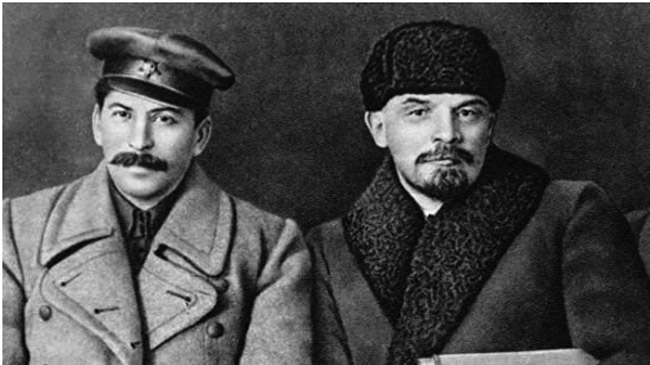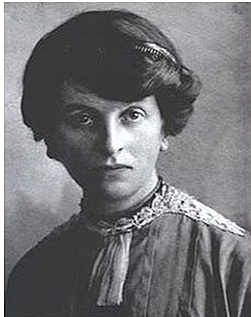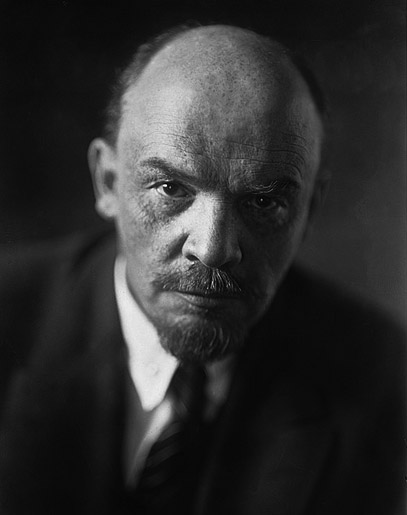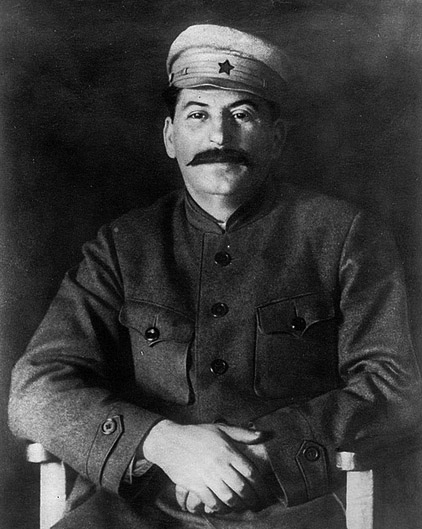
- Articles
Conversations on Lenin, Stalin, and Bolshevik Women: Part I—Power Begets Sex by Adam R. Bogart, PhD and Miguel A. Faria, MD
Bolshevik Women and Stalin—Free Love Advocates?
If, as we had privately discussed, Dr. Faria, Lenin was much more of a sexual creature than he is traditionally portrayed by the Russians, why did he have such contempt for Alexandra Kollontai (1872-1952), the foremost Bolshevik feminist who gave her body to any man she found attractive?

I am well aware that the quote, “We should have sex just like drinking a glass of water,” is wrongly attributed to her, but while officially she did not take such a hard-line position on open sexuality, she did so in her private life. After Lenin died, Stalin did not get rid of her because he found it amusing to treat her as the butt of his clever but sadistic practical jokes until she died in 1952.
Stalin wouldn’t have cared about what she did with her body, but Lenin seems to have greatly. If you believe this, then is the new idea of a “sexual Lenin” also a hypocritical Lenin? —Dr. Adam R. Bogart
Hi Adam, as always, you come up with intriguing ideas and questions, and often I am compelled to offer explanations! There are two answers: The answer submitted by the feminism of the New Left (c. 1960s; provided the person was not the saintly Lenin, of course, but a typical chauvinistic male) is that as a man, he was a “sexist pig,” easily accommodating sexual double standards: It is OK for the man but not for the woman; and he could also be puritanical with others but not so much with himself. The other answer is that I don’t categorize Lenin, or even Stalin, as “sexual creatures.” True, Stalin had several paramours and carried a few affairs during his many, long isolated exiles, and later, rarely, in his travels as Soviet leader. For his part, Lenin had a well-known mistress, Inessa Armand (1874-1920), and may have cavorted with a few prostitutes in his travels probably contracting neurosyphilis in the process—but, I suppose, being an adolescent growing up in the late 1960s and 1970s in America, I don’t consider them particularly great womanizers or “sexual creatures.”

Stalin, amoral as he was, had no sexual hang-ups anyway; his sex life was kept private for political reasons. Lenin, more outspoken on the subject was a “free thinker,” as with Ms. Armand and the French prostitutes, but also puritanical, as with Ms. Kollontai, holding both ideas simultaneously, and thus hypocritical. Trotsky, incidentally, was consistently serious and puritanical on sexual matters, as the story I related to you elsewhere concerning Stalin. — Dr. Miguel A. Faria
Sexual Creatures
Yes, I confess. You are the man with all the answers, and I do enjoy reading what you have to say so much that it is the best part of my morning before work to see what your response is to an interesting query on Bolshevik or neurosurgical trivia. No fact is trivia to me, but to many it might be. I believe you feel similar. No one has ever asked me a question in my life that I thought was trivial. How could it be if you honestly want to know?
But you are right. From what we know, neither Lenin nor Stalin was a “sexual creature,” compared to adolescents growing up today. Far from it. In fact, so far from it that it is a bad idea to prove Lenin was not puritanical in his private life by demonstrating neurosyphilis, which was my real objection to it. Syphilis may be acquired from the first prostitute encounter or even if he utilized a thousand. How many encounters with prostitutes did it take Lenin to contract the disorder? We shall never know, but it is the most crucial question for a thesis trying to disprove Lenin’s puritanical portrayal in that indirect manner. Because, as I had indicated, all Wassermann reactions on the blood and CSF since 1923 were negative, but that did not mean he did not have it. The Wassermann is not specific for syphilis, and false negatives are very high in tertiary forms.
Still, as such proof is lacking, and the autopsy did not furnish any more, people who do subscribe to the neurosyphilis theory for Lenin’s demise need to make some speculation from historical (not medical) sources. I don’t blame them, and I have changed my position on it myself to an extent, but I think it is only fair to point out that this approach is not without its pitfalls either.
Polymerase chain reaction (PCR) to test for nucleotides coding for the cell wall of Treponema pallidum in a brain preserved in formalin since 1924 would likely not be trustable, but it would be the only way to attempt to solve it, but as I have said, the Russians will just not allow it. They may have already done it long ago, and just never told anyone the results.
Yes, I’ll say that 1960 feminists fit the Kollontai mode, so your answer rings true, and they were the ones who first mistakenly attributed that quote to her. But Kollontai’s Ukrainian/Finnish background gave her an exotic if not pretty face, so that odd attractiveness is what separates her from the usual Nadezhda Krupskaya phenotype feminist.
True about Trotsky. He married, but beyond that, he did not seem to have any interests but power and Marxist theoretics. I remember your story, and the offense he took at Stalin’s crude remark. Actually, it wasn’t all that crude to me, but then Trotsky was a true Bolshevik! — Dr. Adam R. Bogart

Sex, Bolsheviks, and the Point in Question
Lenin was building a classless and sexless society. That was to him true equality. I can’t be sure about Stalin, but I am convinced that Lenin really thought he was doing what was best for the Soviet people. For him (as for most totalitarian dictators), it is always the ends that matter. If he had to shoot 50 or 100 or 1,000 people to convey his message, it didn’t matter to him because his message would be improving the lives of so many more people than that! If he was to have a truly egalitarian society, women would not be able to or want to use sexual advantage over men to amass power. This is essentially no different than well off people using money for the same ends, which we know the Bolsheviks wanted to halt, as that was something only the capitalists would allow.
I believe it was upon the introduction of the new Soviet Constitution (along with the infamous Article 58) that Stalin stated, “Mistakes will be made. But the edifice we are building is so grand, that in the end they will not matter.”
I don’t think he was lying. If you take my position, then it is quite possible that he believed as Lenin—that he was doing good for the Soviet people, and any of his actions we consider evil were not evil for him, because he could justify them the same way Lenin did his. It is an uncommon evil person who thinks they are evil. Those who revel in their evilness are mostly in the movies.
So today, it should be obvious to you how the “sexless” society of Lenin is being built in this country by our own Left. Not a day goes by that you don’t hear of it. But there is also that old Leninist contradiction—they seem to be erasing sex and gender, but at the same time promoting division of it. — Dr. Adam R. Bogart
Evil and Power Beget Sex at a Price
First, I disagree with you about the nature of evil. You say that if Lenin would have “to shoot 50 or 100 or 1,000 people to convey his message, it didn’t matter to him because his message would be improving the lives of so many more people than that!” But Lenin killed in the tens of thousands and Stalin in the millions. Lenin condoned terror for its sake and Stalin carried that to the maximum, exceeded perhaps only by Mao Tse-tung in China. Their goal was not to help the Russian people then because the common Russian people were the greatest victims, especially the Kulaks and peasants.

The only difference between Stalin and Lenin was that Stalin distrusted everyone and carried the terror to an extreme. Lenin wanted to preserve communists, especially his Bolshevik comrades, and use the terror on the common people and their opponents. Truth be told, desolation, cruelty, terror, and death follow in the path of the Bolsheviks’ “building socialism,” a path that began, not with Stalin but with Lenin, and was asserted at various points of the revolution by Leon Trotsky (who crushed the sailors’ Kronstadt rebellion without mercy) and most of the other Bolsheviks, including “the darling of the party,” Nikolai Bukharin.
Second, human beings are sexual creatures. Having said that, I might add that there are some women who will gravitate to men because those men are in positions of power. And if these women need to use sex to get closer to those men, then they will do so. Why? It might be that it is power that is the aphrodisiac, and not necessarily the man. Even Henry Kissinger famously observed, “Power is an aphrodisiac.”
In a 2012 article from Psychology Today written by Ian H. Robertson, PhD, in regard to General David Petraeus’ peccadilloes, Robertson noted, “Both men and women who have a high need for power have sexual intercourse more often than those who have lower power needs.”
Perhaps in recognizing the devilish incitement of contradictions and mayhem, you are thinking of pandemonium: The war of all against all, class warfare, sexual and racial wars, et cetera. This brings about another major contradiction, that is, the corruption of the human soul by fraudulent and evil temptations, and thus bringing about the socialist utopia, the dictatorship of the proletariat, and communism as paradise on earth. We know better after the decimation of 100 million hapless victims of totalitarian communism/socialism. After all, it was Joseph Stalin who stated, “The death of one man is a tragedy. The death of millions is a statistic.” For a hellish but satiric look at this, read C. S. Lewis’ masterpiece, The Screwtape Letters. — Dr. Miguel A. Faria
The Men and Controlled Pandemonium!
I think I will call it controlled pandemonium, in the same way Dmitri Volkogonov referred to the USSR under Stalin as “lawless” in his 1991 book, Stalin: Triumph and Tragedy.
Actually, it was full of laws for just about everything, and even if they were not broken, they usually resulted in the same few punishments, but not usually for the highest ruling class, and never the man at the top.
Pandemonium can easily result among the average citizen under those conditions, but it can just as easily be called to a halt when the ruler pleases. It has been suggested that one reason the great purges ended was because Stalin felt they had gained so much momentum that they might just spiral out of even his control. No, terror always had to be left up to him.
What is interesting about this is though it has been documented that Lenin had been the target of assassination attempts several times besides the famous attempt by Fanya Kaplan, Stalin likely was never an intended victim of one, except for the last one that finally killed him, and that was not conducted by ordinary citizens. To me, this suggests that his use of show trials on a massive scale compared to Lenin, plus his development of a cult of personality (which Lenin despised—hence his specific orders not to mummify him), were so effective in instilling complete faith in him from the general population, that it just wasn’t a consideration.
At the same time, studies have indicated that it was likely that the average foreign communist (American, British, et cetera) at this time believed the defendants were genuinely guilty of the charges in the trials of 1937-1938, but the average Russian did not. They could not say so, and they knew it, but it still did not prevent them from revering their leader with love.
But Stalin and Hitler were alike in this aspect. They knew very well some segment of the population might have seen through their facade of lies, but so long as they kept these thoughts to themselves, it was unimportant to them. It only was a problem if those concerns were voiced. — Dr. Adam R. Bogart
Read Part II of this article
Read a conversation about Lenin’s and Stalin’s illnesses
Written by Dr. Adam Bogart and Dr. Miguel A. Faria
Adam Bogart, PhD, is a Behavioral Neuroscientist at the Sanders Brown Center for Aging University of Kentucky, Lexington, KY. Behavioral Neuroscience Kent State University Kent, OH. Post-doctoral fellow at the Albert Einstein College of Medicine, Gruss Magnetic Resonance Research Center Bronx, NY. MS Immunology conjointly Adelphi University/Mount Sinai Medical Center New York City, NY.
Miguel A. Faria, M.D., is Associate Editor in Chief in neuropsychiatry; history of medicine; and socioeconomics, politics, and world affairs of Surgical Neurology International (SNI). Clinical Professor of Surgery (Neurosurgery, ret.) and Adjunct Professor of Medical History (ret.) Mercer University School of Medicine. He is the author of several books including Cuba in Revolution: Escape From a Lost Paradise (2002), and America, Guns, and Freedom: A Journey Into Politics and the Public Health & Gun Control Movements (2019). His most recent book is Controversies in Medicine and Neuroscience: Through the Prism of History, Neurobiology, and Bioethics (2023), published by Cambridge Scholars Publishing in Newcastle upon Tyne, England.
This article may be cited as: Bogart AR, Faria MA. Conversations on Lenin, Stalin, and Bolshevik Women: Part I—Power Begets Sex. HaciendaPublishing.com, April 2, 2023. Available at: https://haciendapublishing.com/conversations-on-lenin-stalin-and-bolshevik-women-part-ipower-begets-sex-by-adam-r-bogart-phd-and-miguel-a-faria-md/
Copyright ©2023 HaciendaPublishing.com